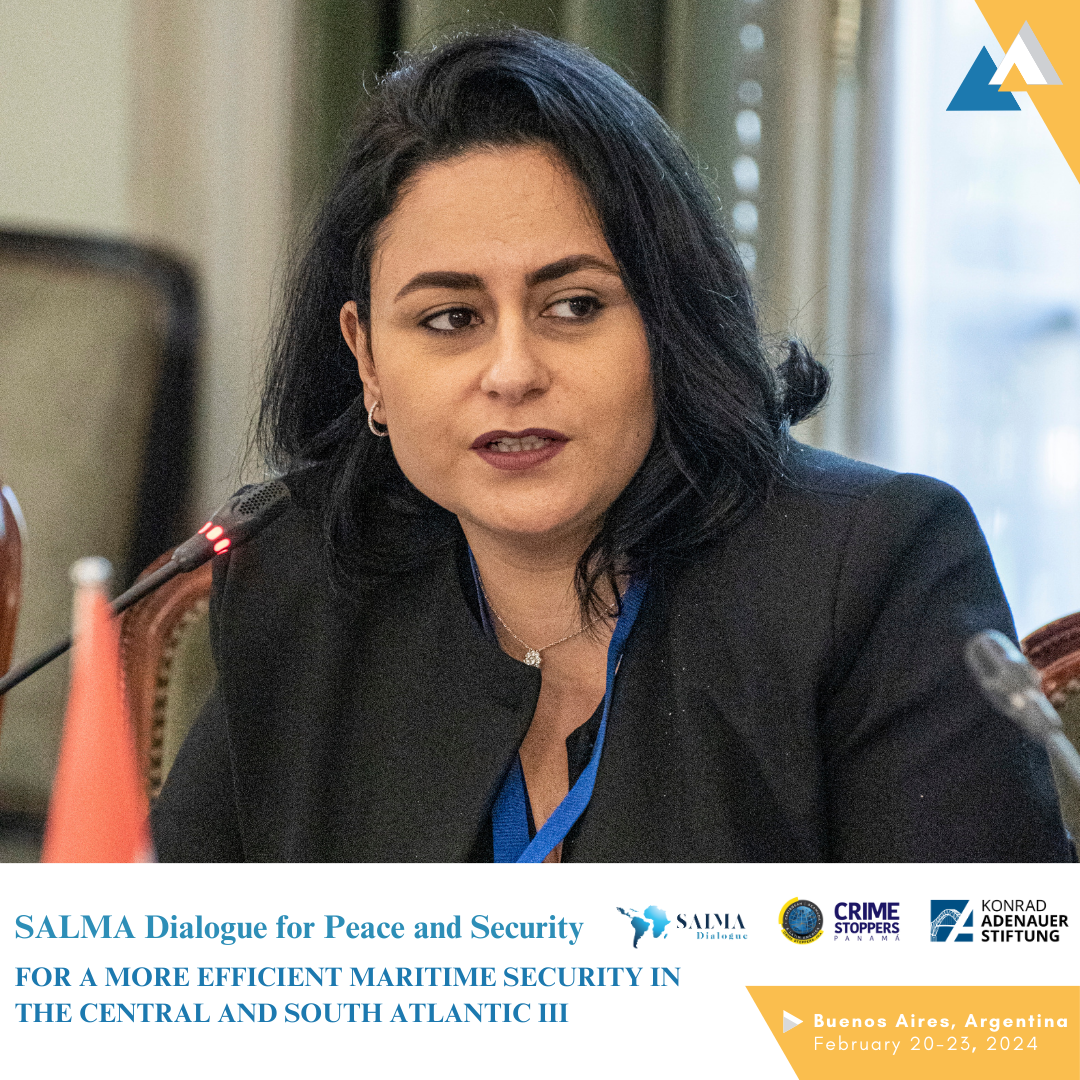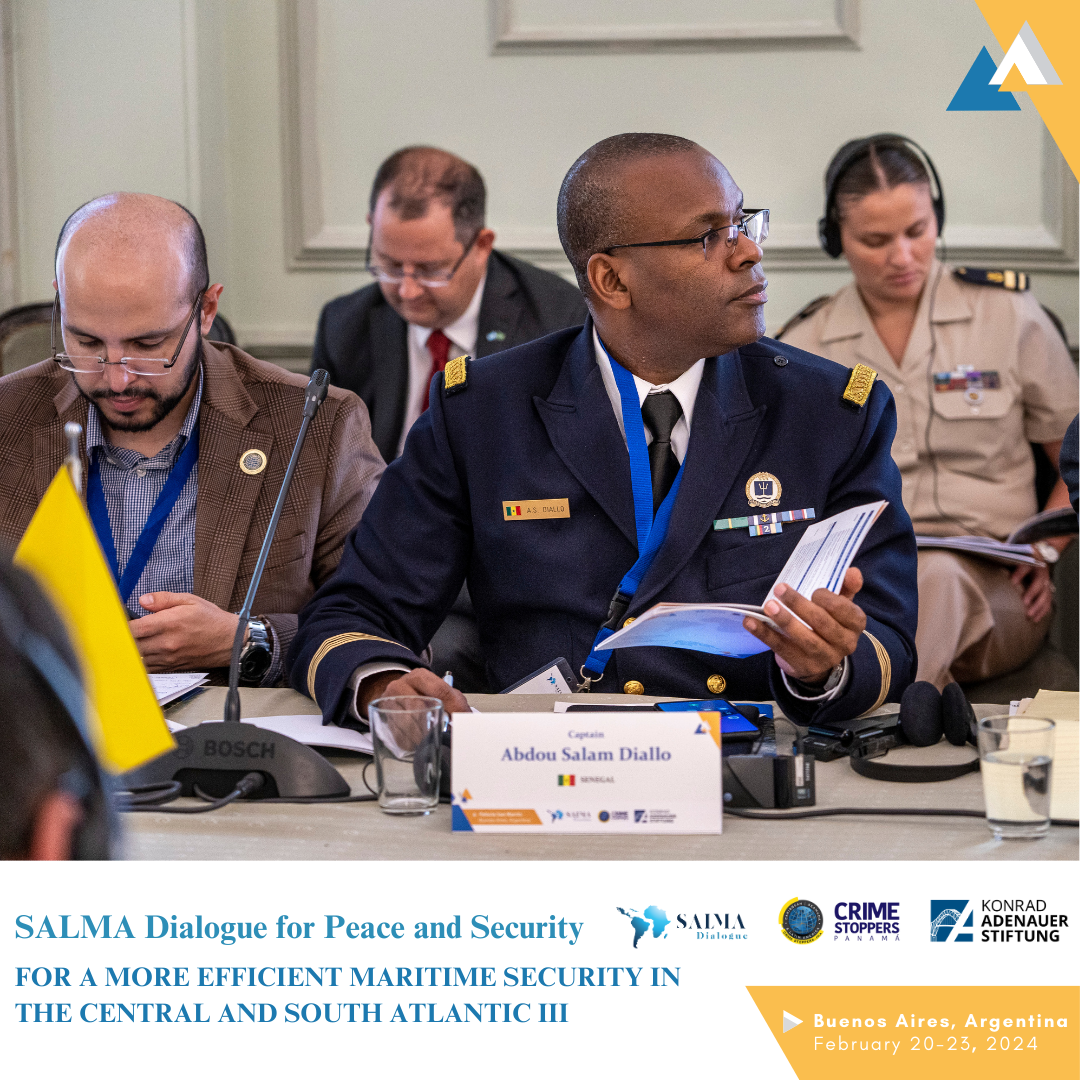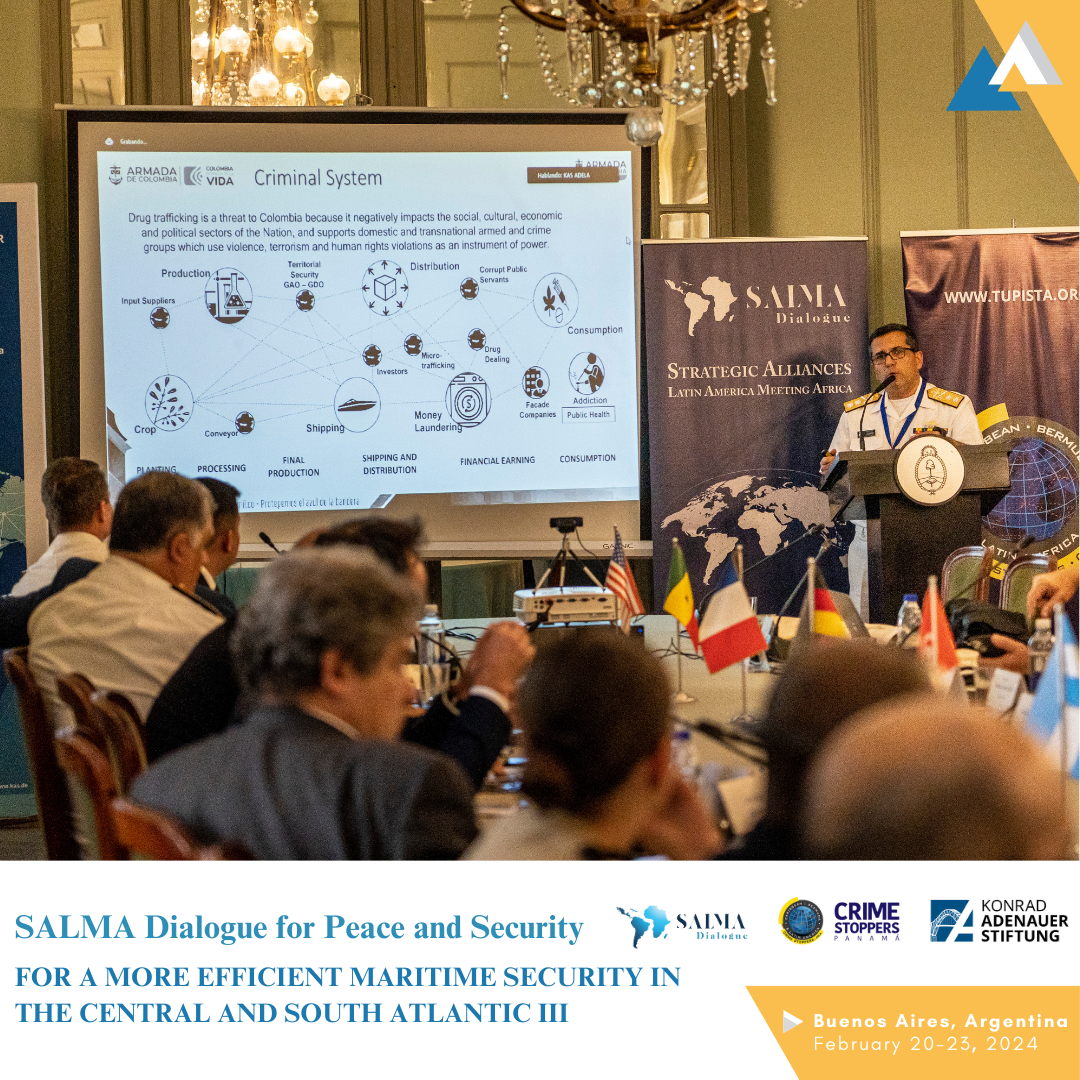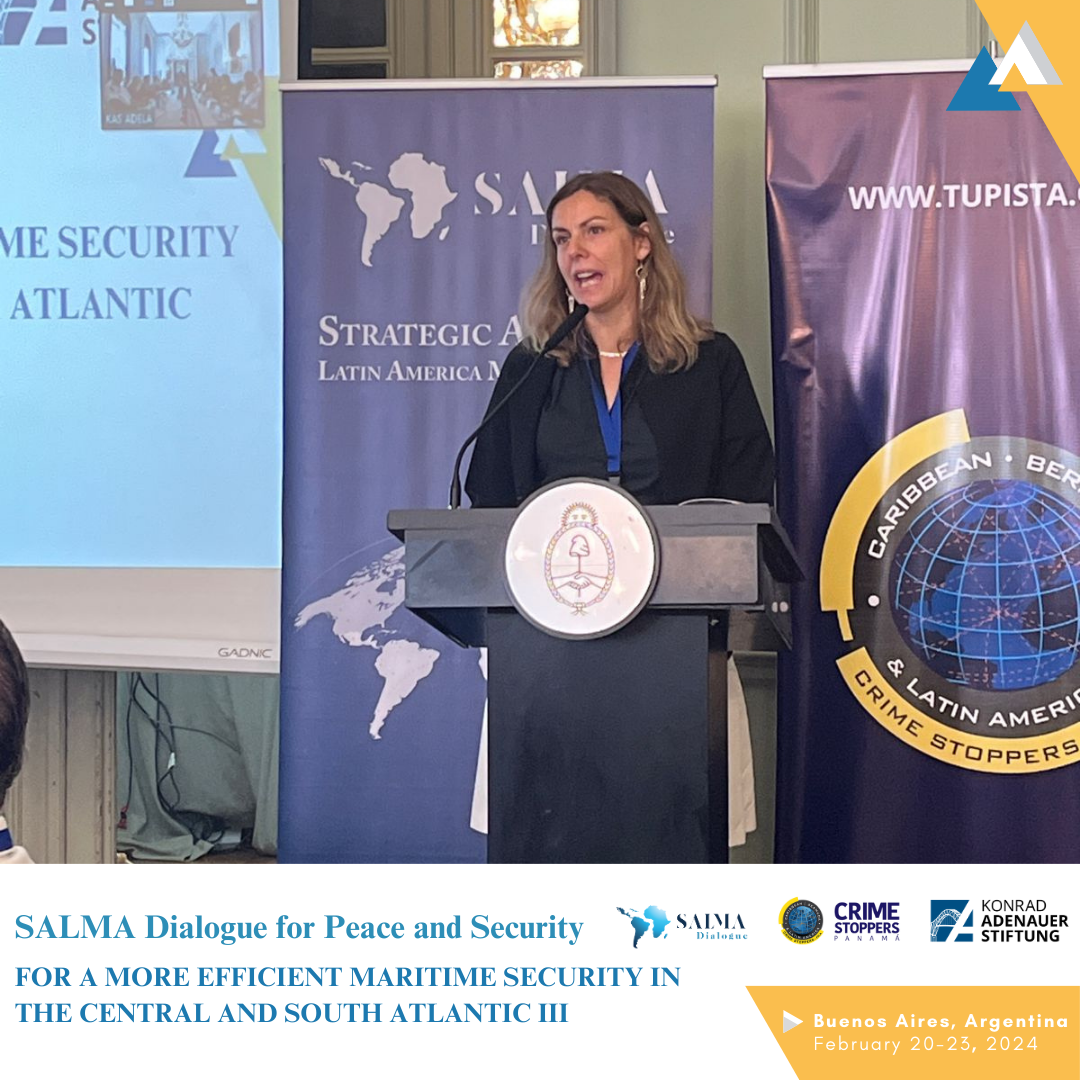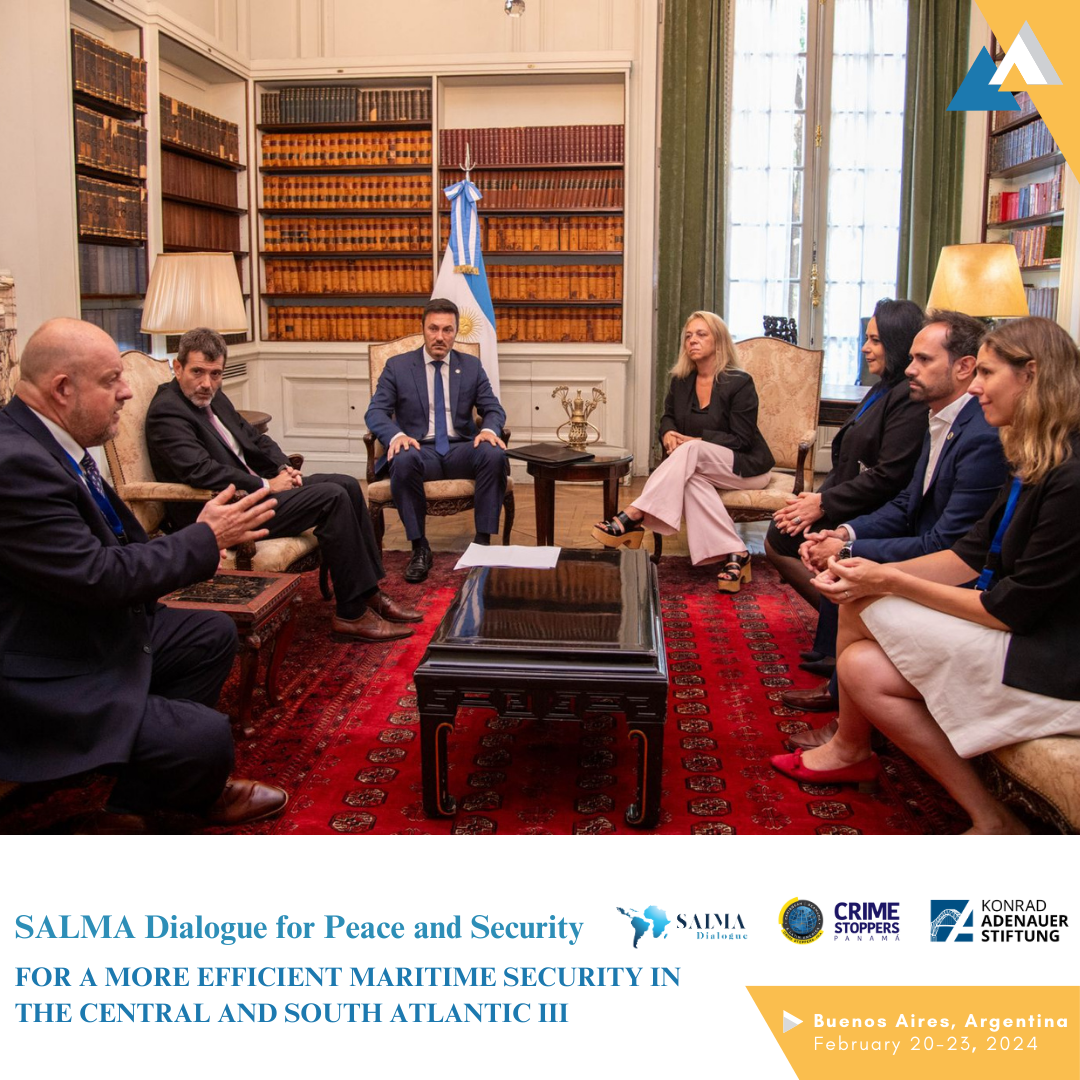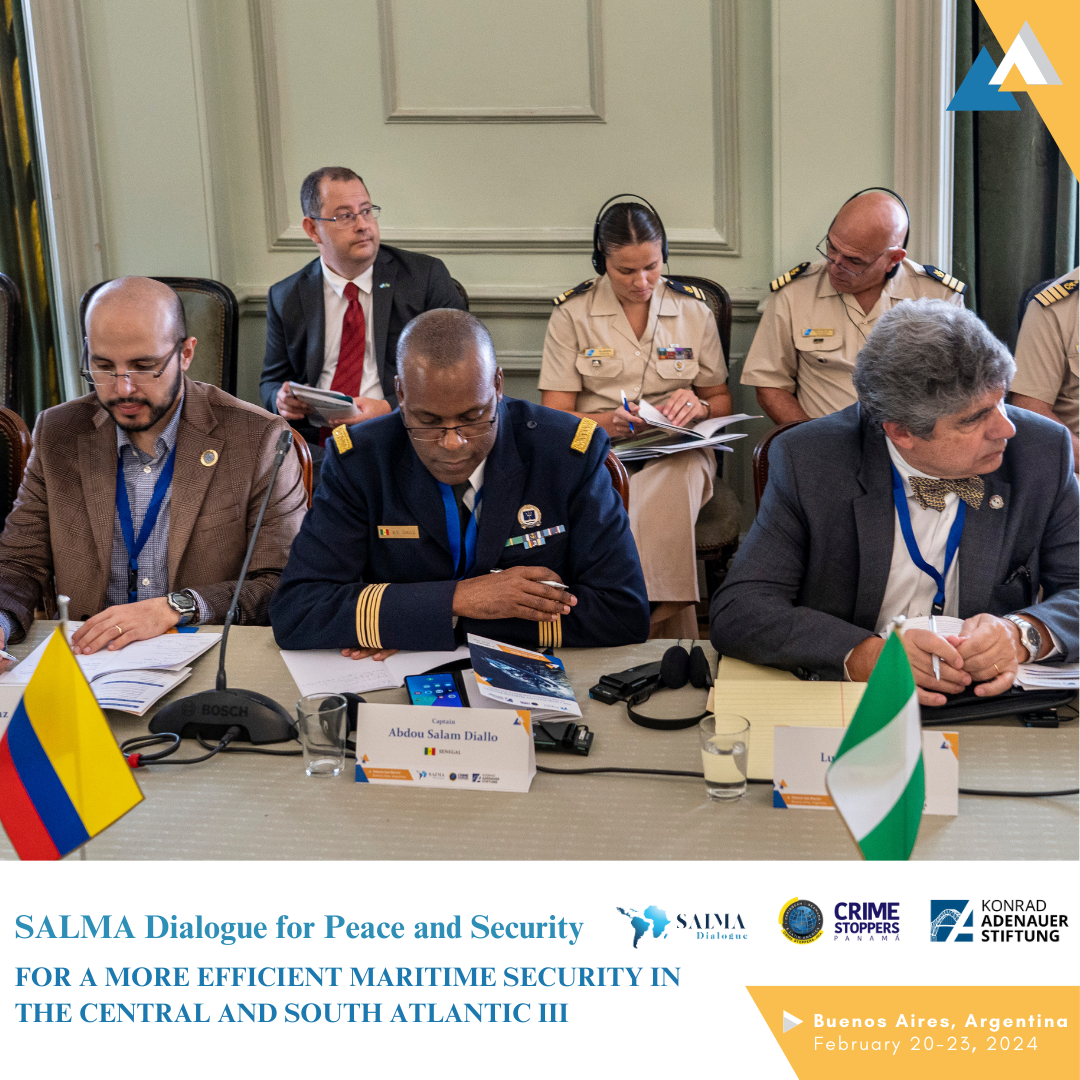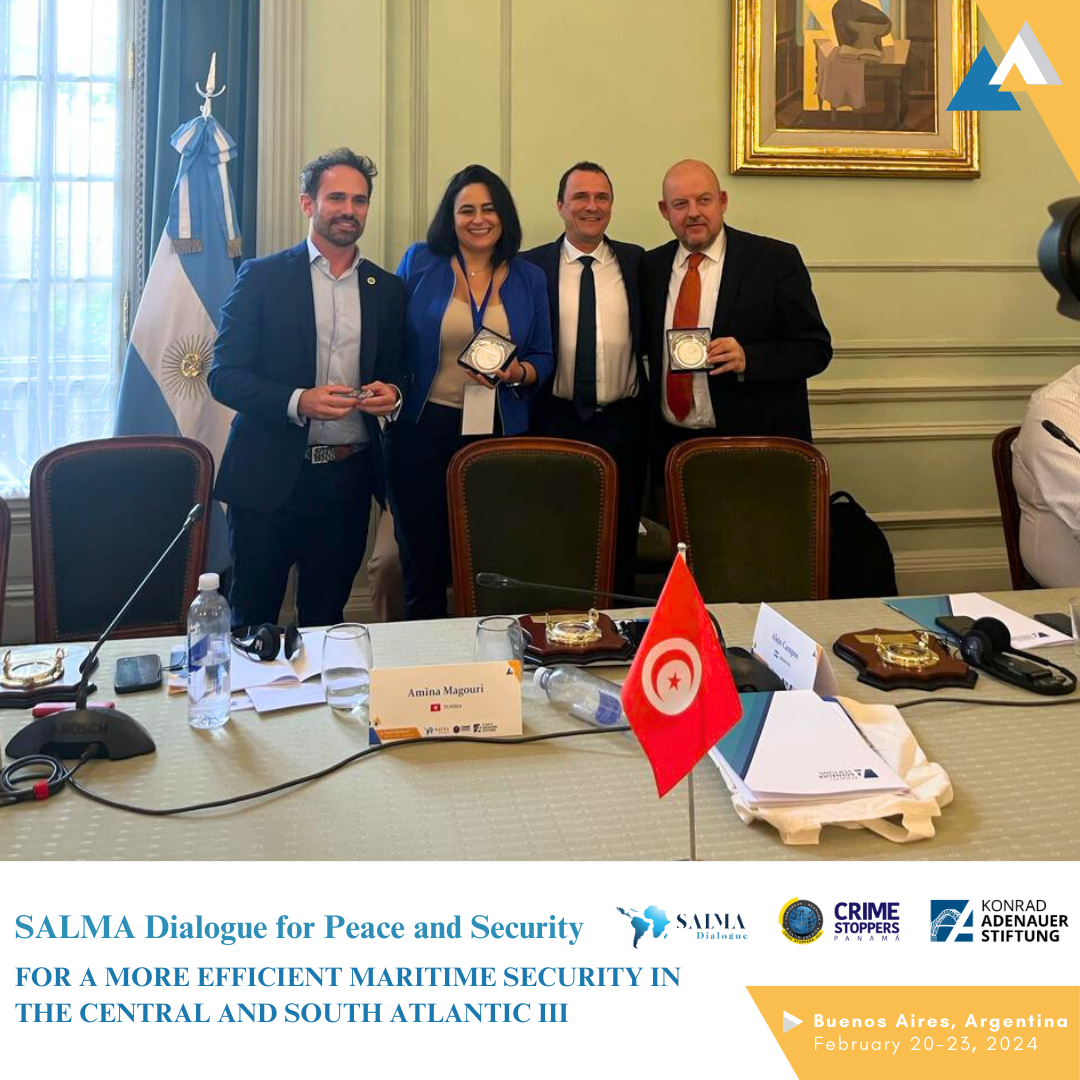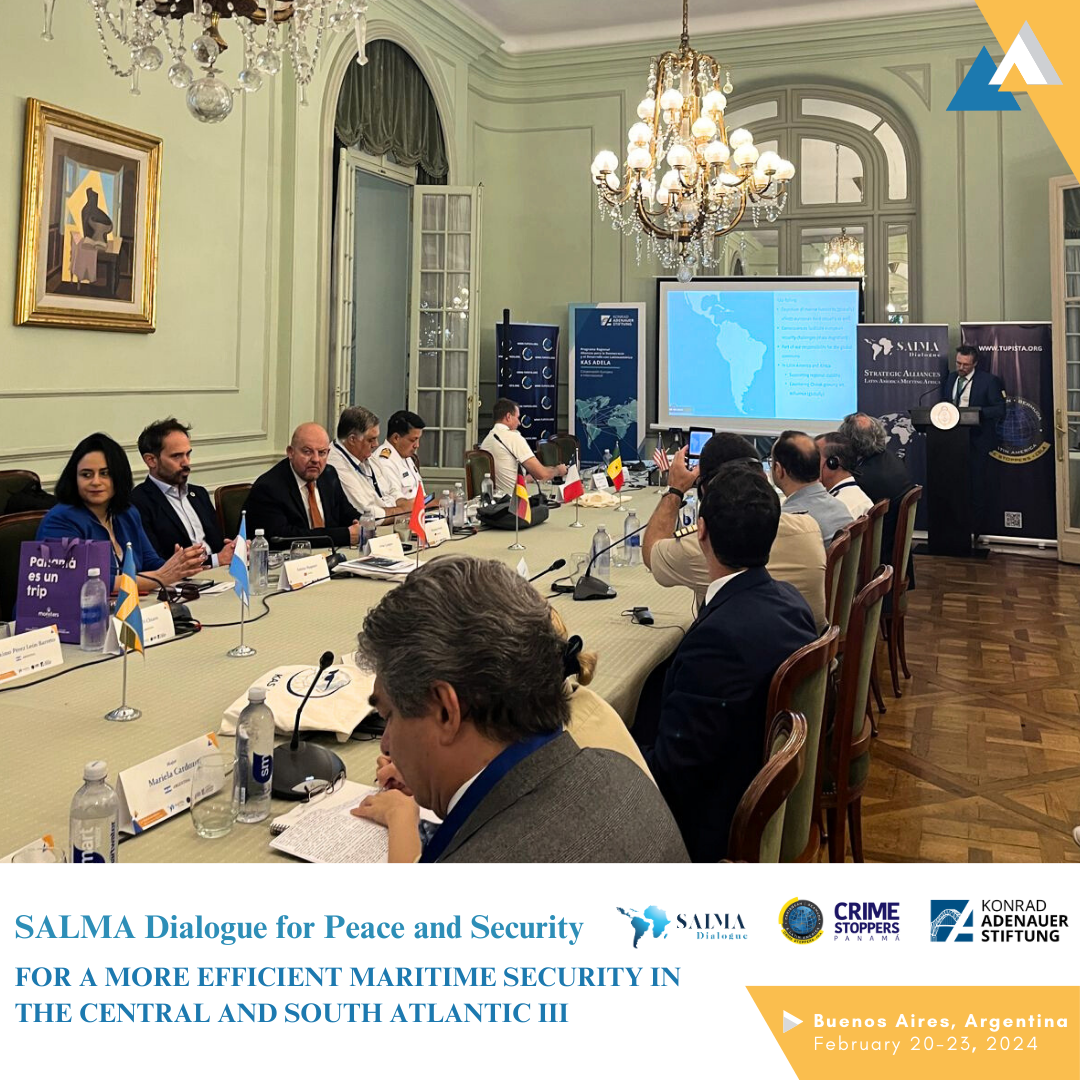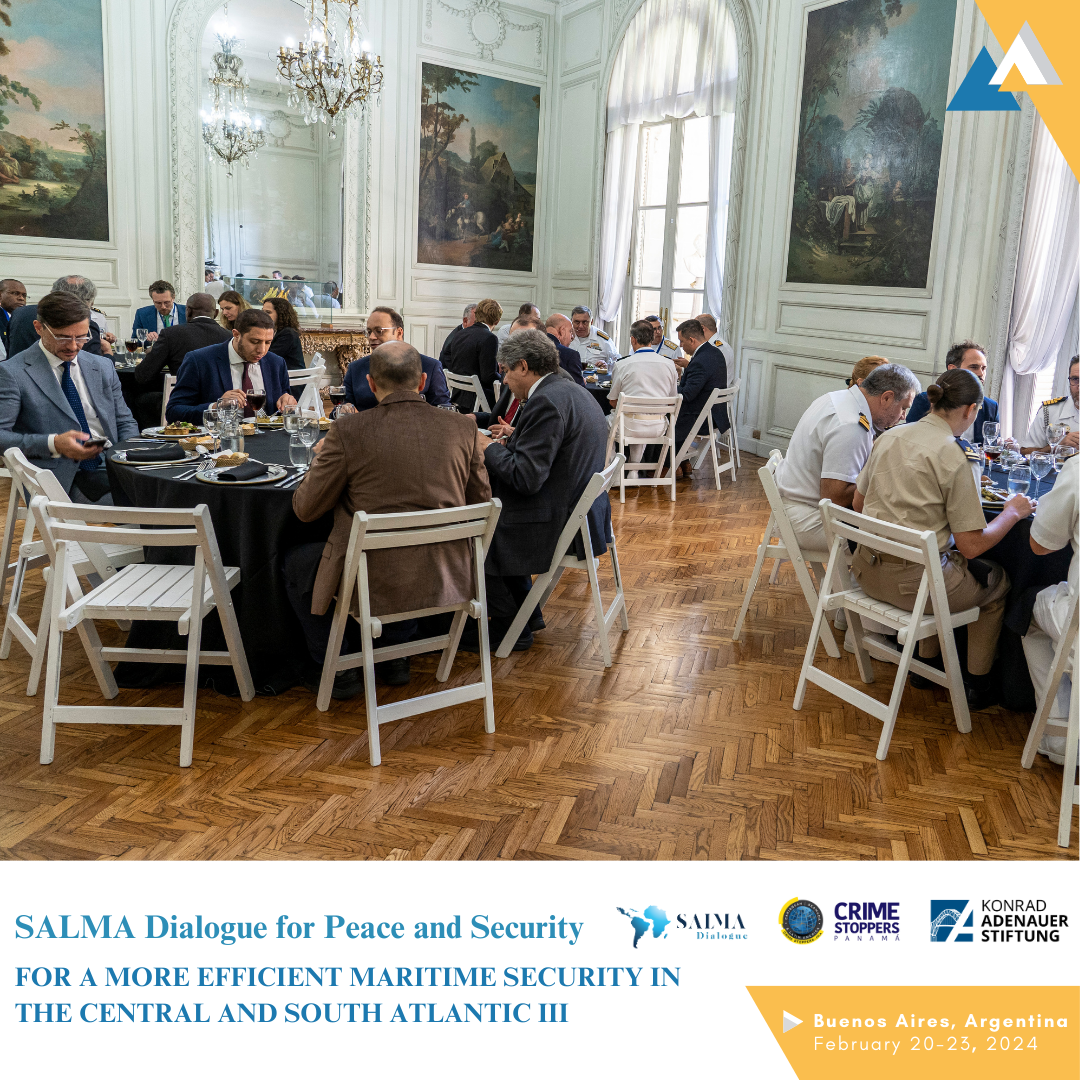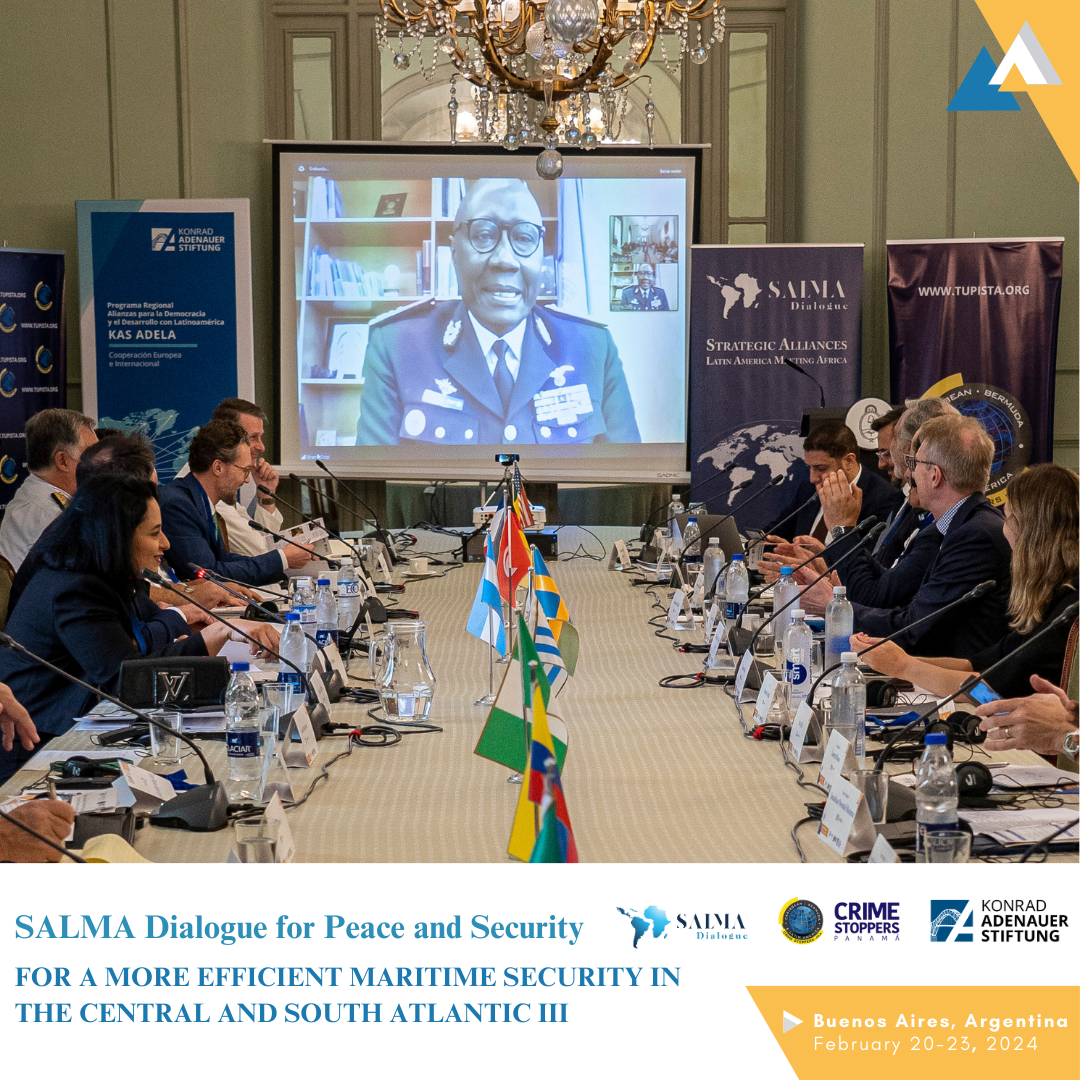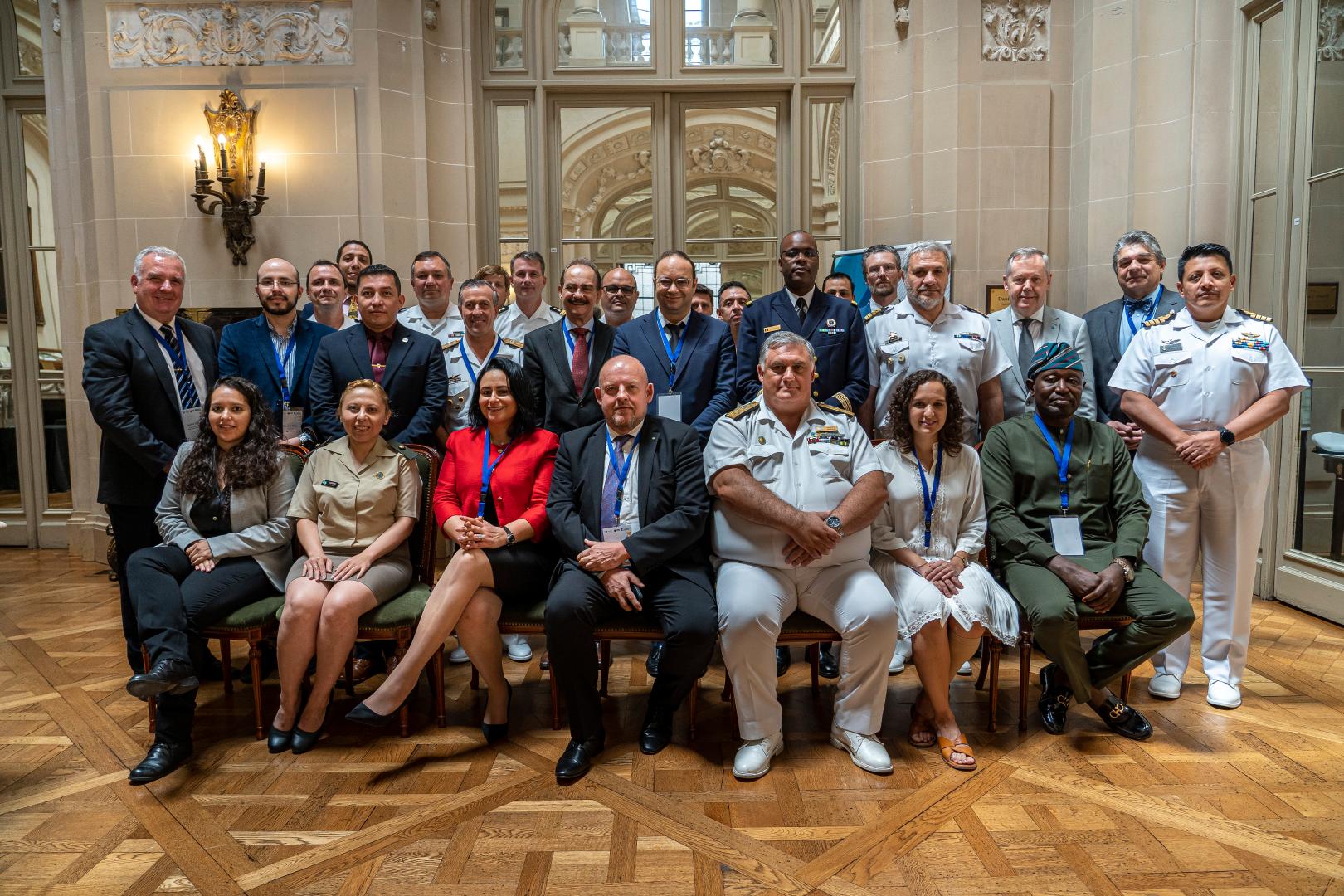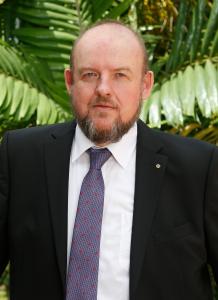According to the available data, organized crime in the central and south Atlantic has expanded and turned endemic, creating a growing demand for maritime safety policies in Latin America and Africa to develop transatlantic security and defense strategies to safeguard the political and economic interests of these States in the region.
In that regard, maritime security in the Central and Southern Atlantic is increasingly the object of national and international attention and interest of many countries in Latin America, Africa, North America, and Europe.
Therefore, interconnectivity between different actors including governments, armed forces, parliaments, companies, and concerned stakeholders is necessary to forge alliances, achieve integration and face the safety challenges.
In order to start building a multiregional maritime security policy, it is necessary to establish a platform involving actors from politics, military, international institutions, and the economic sector from both shores of the Atlantic Ocean.
Multilateral cooperation can cover different aspects in maritime security’s military as well as non-military challenges. It may also include more subtle dimensions related to the maintenance of free maritime routes for the constant flow of food, people, goods and ships, port security and the use of maritime domains.
From this perspective, SALMA Dialogue for Peace & Security tends to create the adequate space to stimulate the South-South and Triangular Cooperation (SSTrC), therefore generating more synergies and achieving a greater impact through global maritime security strategies.
Conference Highlights
Highlighted Key points focused on :
• The challenges and threats facing countries and regions in terms of maritime security present notable similarities, although they have different capacities and resources to address them. From illegal fishing and drug trafficking to organized crime and environmental threats, these issues vary in their manifestation depending on the region. Therefore, the exchange of experiences is crucial to offer new perspectives and seek solutions in collaboration with strategic partners.
• The needs of countries and their institutions, such as naval forces, are comparable. It is vital to pay attention to the increase in economic resources allocated to strengthening maritime security, including the renewal of ships, the adoption of new technologies, and the training of strategic personnel.
• International cooperation is a fundamental pillar for strengthening maritime security in the central and south Atlantic. Through the exchange of knowledge and information, communication between countries can be improved, threats and crisis situations can be anticipated, and expert exchanges can be promoted, leading to significant benefits globally.
• New technologies, such as artificial intelligence and data analysis, are indispensable tools for addressing maritime security challenges. It is crucial to provide training in these areas and constantly update information technologies to develop effective strategies.
• Strengthening cybersecurity measures and reducing cyber risks in key infrastructures, such as ports, states, and ships, through a comprehensive analysis of institutional vulnerabilities.
• Collaboration between non-governmental organizations, civil society, and private companies plays a fundamental role in regional maritime security. It is essential to coordinate efforts through multi-actor tables to optimize the use of available resources.
• The future of triangular cooperation is proposed to identify and enhance existing horizontal naval organizations, with the aim of preserving maritime security and protection and adding value to diplomacy.
• Building a shared common knowledge through horizontal partnerships, especially of a technical nature, focused on the collection and analysis of maritime environment data.
• Triangular cooperation can strengthen horizontal naval partnerships, balance power relations, and foster horizontal exchanges, thus overcoming donor-recipient dynamics and allowing all partners to share their experiences and resources.
• Greater involvement by the Foreign Ministries of countries is recommended to ensure follow-up on cooperation agreements between different navies. Strengthening fluid communication between local institutions and data exchange between respective authorities in countries.
Addressing challenges
This conference is the third one focusing on Maritime Security in the Middle and South Atlantic. During the first event in Cartagena in 2022, the lack of contact and knowledge between the regions of Latin America and Africa was evident (participants expressed that they had never been to the other continent and vice versa).
It was obvious that SALMA Dialogue conferences have opened bridges for joint work between both regions from its launch.
The major barriers identified during the discussions of this year:
1. The lack of communication,
2. the breakage of continuity,
3. the effective launch of concrete and efficient technical cooperation,
4. the mobilization of stakeholders to finance cooperation processes.
In that context the presentations offered by various experts from military, political, and academic backgrounds stand out, focused on the different gaps and brought analyses on the current situation of security in the Middle and South Atlantic and recommendations.
These presentations focused on sharing best practices about:
- multilateral cooperation in defense matters: the relevance of maritime power in the South Atlantic; the implementation of sustainable maritime governance in the Atlantic and the role of policymakers;
- strategic cooperation between Latin America and Africa to address security challenges in the South Atlantic;
- strengthening defense diplomacy in the context of maritime security; launching a multilateral approach to engage in an effective Atlantic security dynamic; and South-South and Triangular Cooperation to design effective regional strategies.
Lack of communication
General Birame Diop (Military Advisor, Office of Military Affairs, Department of Peacekeeping Operations, United Nations, appointed in April 2024 as the new Defense Minister of Senegal) insisted: "we cannot be good partners if we do not know each other sufficiently."
- To move forward and establish sustainable communication processes, it is important to:
- create new channels to correct this lack of communication,
- initiate bi-lateral cooperation mechanisms with the naval forces in both regions to create concrete interactions,
- enhance the participation of representatives from Africa and Latin America in these meetings, which is key to facilitating networking and continuing the exchange.
One of the immediate outputs taken out from the discussions, was the meeting held among representatives from Senegal, Colombia, Nigeria, Uruguay, KAS ADELA, SALMA Dialogue, to launch the technical cooperation process.
Breakage of continuity
Since the link is interrupted when the focal points change, the rotation of the authorities has to be followed to ensure continuity. Identifying the adequate focal points with the necessary skills and relevant continuity capacity to ensure that cooperation is sustainable in the long term, as well as to include new participants to incorporate new perspectives on this issue.
Effective launch of concrete and efficient technical cooperation
The growing need of cooperative work between both regions has to focus on addressing the challenges of threats and risks that may arise at the maritime level, such as drug trafficking, illegal fishing, maritime accidents, and response capacity (environmental and structural).
Efficient technical cooperation should concentrate efforts in:
- military exercises between the regions of Latin America and Africa,
- promoting the follow-up of political initiatives related to maritime security beyond changes in political authorities,
- strengthen diplomacy to coordinate joint initiative and to reinforce and harmonize maritime legislation in the central and south Atlantic,
- "Defense Diplomacy is the specific set of social practices to build and maintain non-coercive defense relationships between states and other entities with status in international politics." Admiral Silva (Brazil) mentioned,
- providing a clear vision of the partnership, assistance, and desired objectives regarding maritime security to ensure adequate diplomatic negotiation, recommends Rear Admiral Mamman, Chief of Staff of the Headquarters of the Nigerian Western Naval Command.
- sharing resource capabilities among partners that can generate adequate attention in the region, developing capabilities through joint exercises, exchange of doctrine, and training (such as the US Sea Rider program), helping to provide Domain Awareness facilities to countries that require it,
- promoting the integration of all partners from the outset in all processes of collective maritime security, from coordination to the capacity for information exchange through databases involving non-governmental actors, such as NGOs and Think Tanks, to play a role both as observers and promoters of solutions to address maritime issues.
Mobilization of stakeholders to finance cooperation process
In a time of increasing geopolitical instability, Europe must reassess its multilateral approach and seek new strategic partners in the "global south", establishing relationships that generate mutual benefits. Given the region's global leadership in security, especially due to its strong naval alliances and capabilities, its expertise can significantly contribute to strengthening training and knowledge exchange with other regions. To develop a common strategy, Europe should focus on cooperation process and establish a sustainable dynamic to involve key actors.
Key Recommendations
The different keynote speakers expressed a series of recommendations as listed below :
• The need to visit each other and make sure bilateral and multilateral visits are secured.
• The networking mechanisms need to be sustained through regular updating of each other, especially to ensure continuity when positions are changing, the impact of virtual tools in securing engagement beyond the conferences.
• The major role of NGOs is underrated in the analysis of the stakeholders. The ministries of defense should develop the openness to hear and cooperate with those actors.
• Advanced Academic studies in the maritime sector is key for developing knowledge and building partnerships with non state actors.
• The difference of governance structure is not helping the cooperation.
• Transnational organized crime is combated more effectively through international cooperation.
• More than 80% of illicit drug seizures take place at sea, maritime interdiction must be straightened.
• Intelligence exchange is the key to achieving effectiveness in the dismantling of transnational crime networks.
• The Colombian navy invites all countries to integrate efforts to improve control of the maritime communication lines. Intelligence exchange is the key to achieving effectiveness in the dismantling of transnational crime networks. The Colombian navy invites all countries to integrate efforts to improve control of the maritime communication lines.
• Some of the zones in the Gulf of Guinea, especially Zone D, E and F have cooperated to emplace Multinational Maritime Coordination Centre (MMCC) to coordinate the efforts of Maritime Law Enforcement Agencies in curtailing maritime crimes within their zones.
• Partners to provide clear vision on partnership , assistance/ sincerity of purpose
• Partners assist in recapitalization of weak navies and coast guards of the GoG
• Capacity building through joint Exchange of doctrine and trainings (US Sea Rider)
• Assist in providing Domain Awareness facilities to requiring countries
• Strengthen and harmonize maritime legislation through diplomacy
